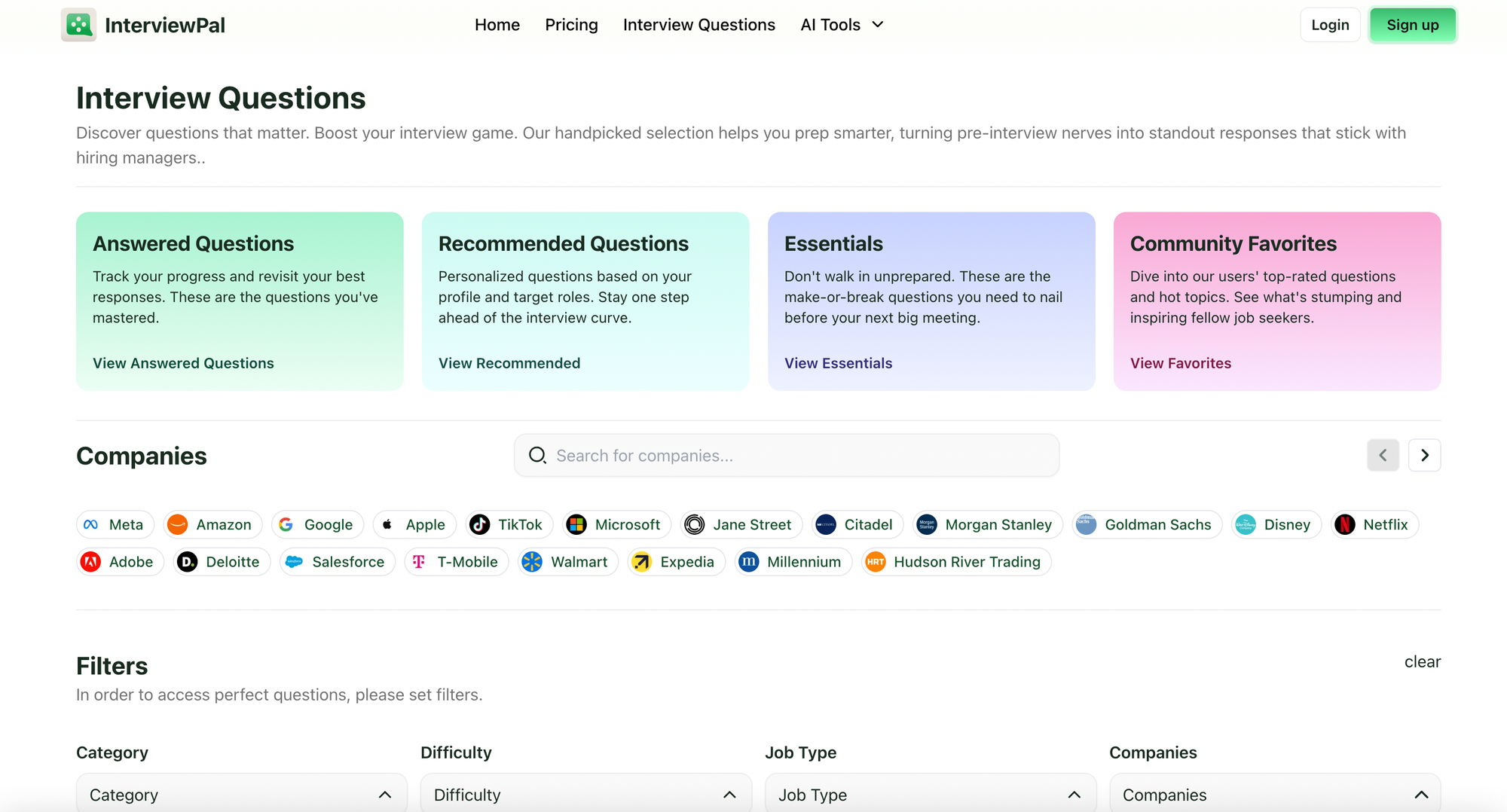Navigating questions about your working relationships in job interviews can be super tricky. While interviewers want to understand how well you work with others, they're also looking for specific dynamics: how you engage with authority figures like managers, versus your peers and coworkers. Let’s break down how you can answer questions about these relationships thoughtfully, highlighting examples that show your flexibility, collaboration, and respect for hierarchy.
Whether you're applying for a role in a fast-paced tech company or a more traditional organization, how you describe your working relationship with both managers and coworkers can influence an interviewer’s perception of you as a well-rounded candidate. Here’s how to master these questions and deliver answers that paint a comprehensive picture of your working style.
Why Interviewers Care About Your Working Relationships
First, it helps to understand the motivation behind these questions. A candidate’s compatibility with team culture can significantly affect their success. Here’s what hiring managers are hoping to uncover:
- Your Communication Style: Managers want to know if you're direct, adaptable, or proactive when engaging with others. Communication skills differ when addressing a manager versus a peer, and interviewers are looking for awareness of these nuances.
- Your Ability to Navigate Hierarchy: In many workplaces, the power dynamics between managers and team members shape the team’s functionality. An interviewer wants to know if you respect authority and understand when to assert yourself or take a step back.
- Conflict Resolution Skills: When it comes to working with both managers and coworkers, conflict can arise. The way you approach and resolve these conflicts—especially with managers or coworkers—says a lot about your maturity and problem-solving abilities.
- Collaboration and Independence: Some roles require intense collaboration, while others need a lot of autonomy. A balanced relationship with both managers and coworkers demonstrates that you can shift between these modes depending on what the role demands.
By preparing for questions on working relationships, you can address these attributes with examples that highlight your emotional intelligence, flexibility, and understanding of workplace dynamics.
How to Describe Your Working Relationship with Your Manager
When describing your relationship with a manager, it’s essential to strike a balance between professionalism and respect. Here are some aspects to focus on and sample examples to inspire your own answer.
1. Show Respect for Their Role and Expertise
Managers are generally tasked with the vision and goals of the team. Expressing respect for their knowledge and authority—without coming across as overly deferential—can paint you as someone who values guidance and expertise. Consider an example where you learned something valuable from your manager.
Example:
"In my previous role, I worked under a manager who was very detail-oriented and had high standards for quality. Initially, I found it challenging to meet all of his requirements on time, but I soon learned that his attention to detail was actually improving my own quality of work. I began approaching him with specific questions about areas I was struggling with, and he appreciated that I was proactive about learning rather than just meeting minimum expectations. Over time, our relationship became one where I could trust his feedback, and he trusted my commitment to excellence."
2. Highlight Your Openness to Feedback
A productive working relationship with a manager is often rooted in feedback. Explain how you are open to feedback and willing to adjust your work based on their insights. This signals a growth mindset and shows that you’re adaptable.
Example:
"One of the things I value most in a working relationship with a manager is open feedback. In one role, I had a manager who frequently checked in on my progress and provided constructive feedback. Initially, I was nervous about these regular check-ins, but I realized they were an opportunity to refine my skills. By being open to his feedback and applying it, I not only grew professionally but also earned his trust. I believe that a good working relationship with a manager is about being receptive to feedback and using it to improve continuously."
3. Demonstrate Initiative and Independence
While respect and openness are important, managers also want team members who can work independently without needing constant direction. Talk about a time you took initiative on a project or task, showing that you can balance independence with collaboration.
Example:
"In my last position, my manager gave me the freedom to lead a small project on my own. He provided the initial guidelines but trusted me to manage the day-to-day. I made it a point to keep him informed about the project's progress through regular updates, but I also took responsibility for minor decisions without needing his input every step of the way. By showing that I could handle things independently, I built a stronger working relationship where he knew he could rely on me."

How to Describe Your Working Relationship with Coworkers
Your relationship with coworkers is usually more collaborative and less hierarchical. It’s a chance to showcase how well you work with equals, emphasizing teamwork, mutual support, and conflict resolution.
1. Emphasize Collaboration and Team Success
Employers are increasingly valuing collaborative skills, as many roles require teamwork to achieve results. Focus on an example that demonstrates how you’ve actively contributed to a team and supported your colleagues.
Example:
"In my last job, I was part of a project team responsible for launching a new product. Everyone had different responsibilities, but we had a very collaborative working style. I took the initiative to organize weekly check-ins, where we could discuss any roadblocks. By creating a platform where everyone could support each other, we were able to launch the product ahead of schedule. My relationship with my coworkers was grounded in open communication, and we all prioritized the team’s success over individual tasks."
2. Highlight Your Conflict Resolution Skills
When working with peers, conflicts can arise, whether it’s about differences in opinion or approach. Use an example to show that you can handle conflicts constructively, without escalating them.
Example:
"During a recent project, I worked closely with a coworker who had a very different approach to problem-solving. Initially, our discussions were tense because we both felt strongly about our ideas. I suggested that we sit down and map out each approach's pros and cons objectively. This exercise helped us find common ground and combine the best of both ideas. In the end, our solution was stronger because of it, and I learned the value of understanding another person’s perspective."
3. Showcase Support and Mentorship
Sometimes, your relationship with coworkers involves a degree of mentorship, even if informally. If you’ve had an opportunity to support a coworker’s development or vice versa, it’s worth mentioning.
Example:
"In one role, I noticed a new coworker was struggling with a particular process that I had experience with. I offered to mentor them informally, and we set up weekly sessions where I could help them improve their skills. Not only did this build a strong working relationship between us, but it also boosted team morale, as others saw that we were invested in each other’s growth."
How to Answer Questions Comparing These Relationships
Sometimes, an interviewer might ask you to directly compare your relationships with managers and coworkers. This can be tricky, but the goal is to show that you understand the distinct dynamics of each relationship.
1. Highlight Adaptability to Different Roles
An effective answer will convey that you can adapt to different expectations and responsibilities depending on whom you’re working with. Express your understanding that managers have a different role and that your relationship with coworkers is more peer-oriented.
Example:
"My relationship with managers tends to be structured around learning and guidance; I see them as a resource for my professional development, and I’m receptive to their feedback. With coworkers, the dynamic is more collaborative, with a focus on shared responsibilities. I believe in adapting my communication style based on whom I’m working with—seeking guidance from managers while being collaborative and supportive with my peers."
2. Demonstrate Emotional Intelligence and Situational Awareness
Show that you understand the need for emotional intelligence when navigating these relationships. Managers and coworkers each require different communication styles, and displaying awareness of these nuances can set you apart.
Example:
"When working with managers, I make a point to respect their time and focus on delivering updates that align with their goals. With coworkers, I’m more likely to dive into the details and seek input. I understand that these relationships require different approaches, and I’m comfortable adjusting to fit the situation."
3. Focus on Consistency and Respect
A consistent approach, marked by respect and openness, is essential regardless of hierarchy. Highlight that while your style may shift slightly between managers and peers, your core values remain steady.
Example:
"While my relationship with a manager might be more formal and centered on receiving guidance, my core approach doesn’t change. I value respect, clear communication, and accountability in all my professional relationships, whether it’s with a manager or a peer. This consistency has helped me build strong working relationships across the board."
Describing your working relationship with managers versus coworkers requires a delicate balance. You want to show that you can communicate with authority figures respectfully, take initiative, and follow feedback while being collaborative, supportive, and constructive with peers. By preparing clear, thoughtful examples, you can showcase yourself as a well-rounded professional with the skills to work effectively with people at all levels of an organization.
Approaching this topic with authenticity and self-awareness will not only help you answer interview questions with confidence but also demonstrate your emotional intelligence and adaptability—qualities that are indispensable in any work environment.



